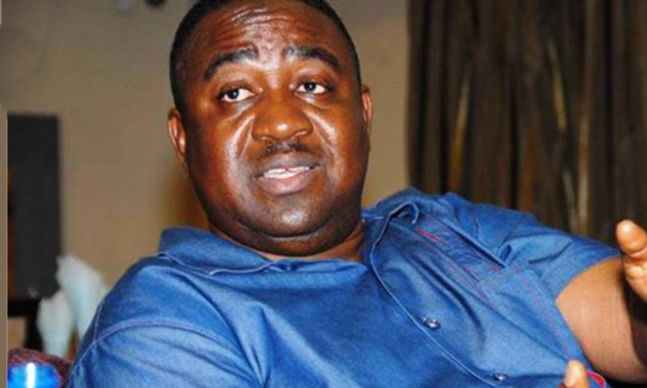The Peoples Democratic Party (PDP), one of Nigeria’s major political parties, finds itself in dire straits, teetering on the brink of collapse ahead of the 2027 general elections. This precarious situation has been exacerbated by internal strife and a wave of defections, prompting concerns from prominent party members like former Benue State Governor, Senator Gabriel Suswam. Suswam’s stark warning paints a picture of a party grappling with deep-seated issues that threaten its very survival. He likens the PDP to a patient in the Intensive Care Unit (ICU), suggesting a 50-50 chance of recovery. This critical assessment underscores the urgency of the situation and the need for immediate and decisive action to avert a potential implosion.
The party’s internal struggles are manifest in the ongoing power struggle over the position of national secretary. This contest for a key leadership role has further fractured the PDP, highlighting the existing fissures and intensifying internal rivalries. Adding to the party’s woes is the recent exodus of prominent members, including the current and former governors of Delta State, Sheriff Oborevwori and Senator Ifeanyi Okowa respectively, along with several other party stalwarts, to the ruling All Progressives Congress (APC). This mass defection not only weakens the PDP’s presence in a strategically important state but also symbolizes a broader trend of disillusionment and disaffection within the party’s ranks.
Senator Suswam emphasizes the prevailing sense of despair among PDP members, many of whom have lost hope in the party’s ability to rebound and reclaim its former prominence. This loss of faith translates into a lack of motivation and commitment, further hindering the party’s efforts to rebuild and reorganize. The dwindling morale within the party’s base is a serious concern, as it undermines the PDP’s ability to mobilize support and effectively compete in future elections. The party’s current state reflects a deeper malaise, characterized by internal divisions, strategic missteps, and a perceived lack of direction.
However, amidst this gloom, there is a glimmer of hope. Rescue efforts, spearheaded by former Senate President Bukola Saraki and supported by a group of PDP governors and former governors, are underway. These efforts aim to address the root causes of the party’s decline, bridge the widening gaps between factions, and restore confidence among its members. The success of these initiatives is crucial for the party’s survival. Senator Suswam acknowledges the significance of these efforts, stating that the next two weeks will be crucial in determining whether the party can be salvaged. The outcome of these efforts will not only decide the PDP’s future but also impact the broader political landscape in Nigeria.
The gravity of the situation cannot be overstated. Senator Suswam’s analogy of the PDP being in the ICU underscores the precariousness of its current state. The party’s survival hinges on the success of the ongoing rescue efforts. Should these efforts fail, the PDP faces the very real prospect of disintegration, which would significantly reshape the political dynamics of the country. The potential collapse of such a prominent party would create a vacuum in the political landscape, potentially leading to realignments and the emergence of new political forces.
The PDP’s challenges are multifaceted and require a comprehensive and strategic approach to resolution. Addressing internal divisions, strengthening party structures, and regaining the trust of the electorate are paramount. The party needs to articulate a clear vision for the future and demonstrate its commitment to serving the interests of the Nigerian people. The coming weeks will be critical for the PDP. The party stands at a crossroads, and its decisions in the near future will determine its fate. The success or failure of the rescue efforts will have far-reaching implications for the party and the Nigerian political scene as a whole.


